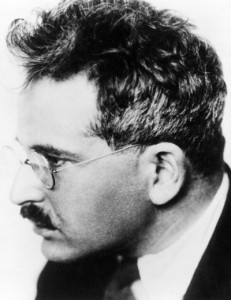Benjamin’s essay most relevant to our work here at Archipelago has to be “The Task of the Translator.” Originally written as an introduction to his translation of Baudelaire’s Tableaux Parisiens, the essay stands on its own as a translator’s manifesto. Over the next few weeks, I’ll highlight some particularly explorative statements, and I encourage anyone to leave a comment with their thoughts, rants, diatribes, etc. Discuss!
[A translation’s] essential quality is not statement or the imparting of information. Yet any translation which intends to perform a transmitting function cannot transmit anything but information–hence, something inessential. This is the hallmark of bad translations. But do we not generally regard as the essential substance of a literary work what it contains in addition to information–as even a poor translator will admit–the unfathomable, the mysterious, the “poetic,” something that a translator can reproduce only if he is also a poet? This, actually, is the cause of another characteristic of inferior translation, which consequently we may define as the inaccurate transmission of an inessential content. This will be true whenever a translation undertakes to serve the reader. However, if it were intended for the reader, the same would have to apply to the original. If the original does not exist for the reader’s sake, how could the translation be understood on the basis of this premise?
These two, bold statements twist together to form a thought difficult for me to fully understand. He seems, at first, to suggest that translation is a middle-ground between meaning and music. The next sentence, however, clarifies this further:
Translation is a mode.
And later:
As translation is a mode of its own, the task of the translator, too, may be regarded as distinct and clearly differentiated from the task of the poet.
Benjamin separates the action of the translator from the poet or novelist, giving translators their due independence as artistis in their own, distinct way.

